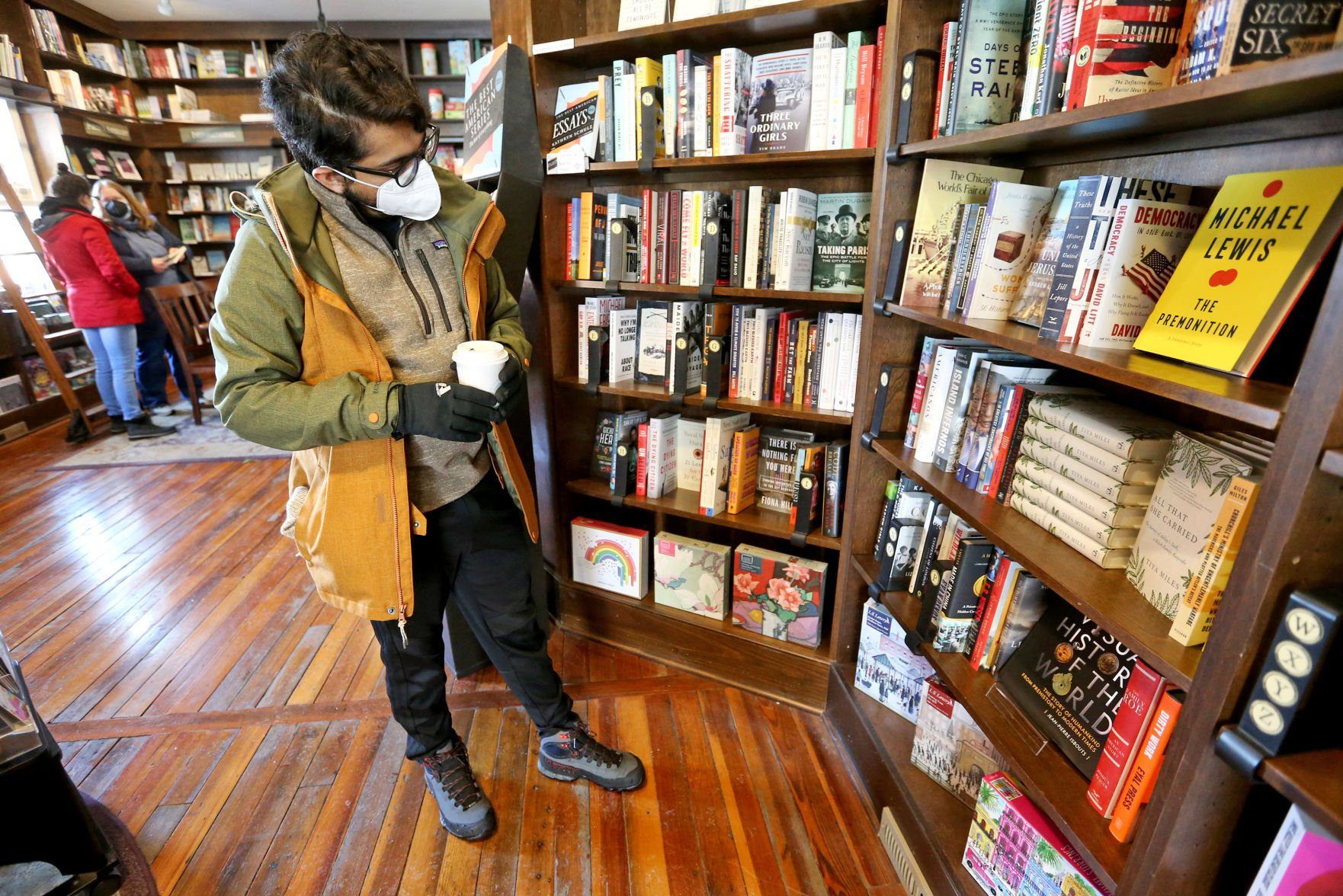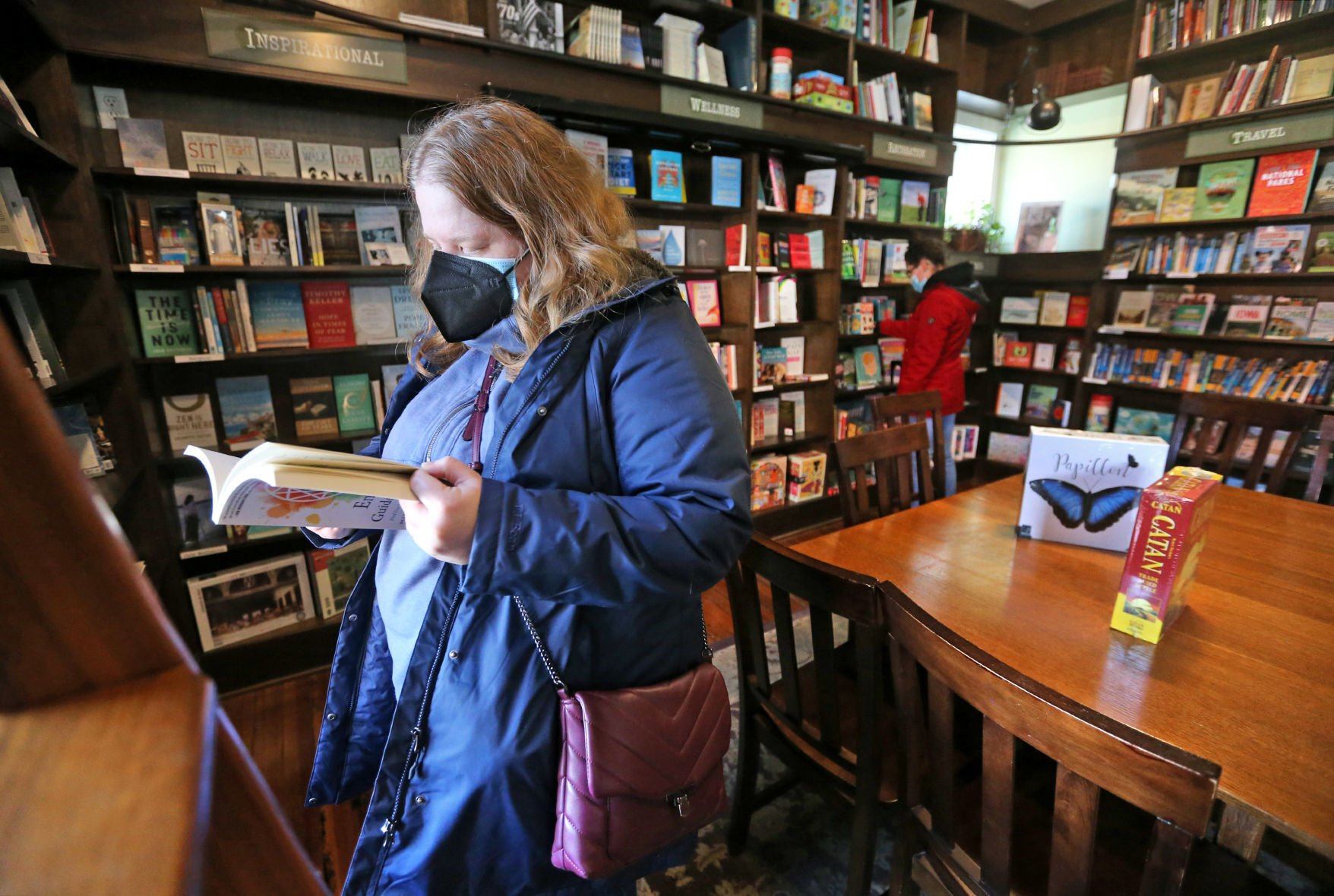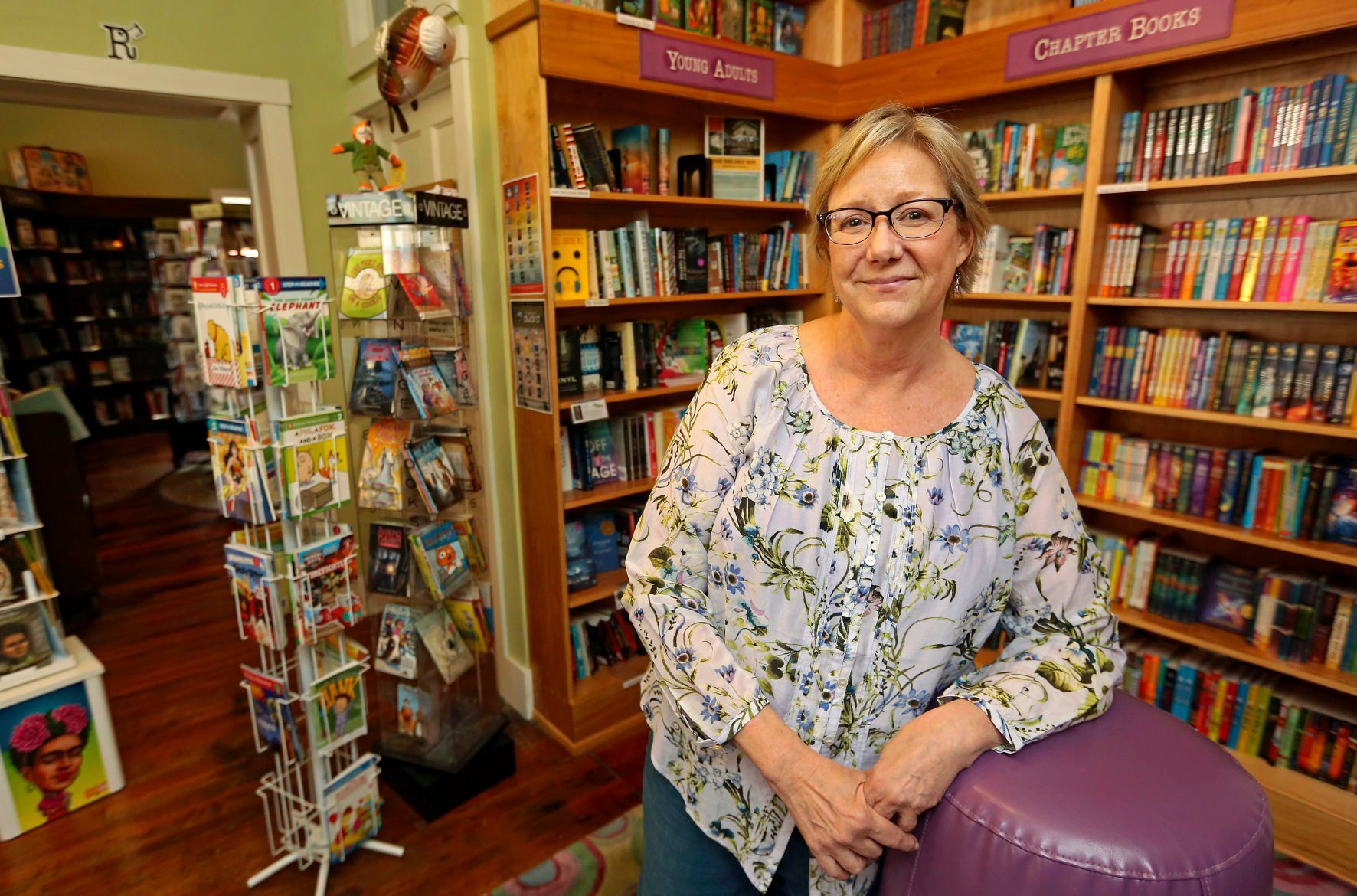The number of the nation’s bookstores has been cut by half over the past two decades.
And while bookstore spending took a nosedive at the start of the COVID-19 pandemic as businesses shut down and customers stayed indoors, sales improved in 2021, and in some months, they actually exceeded pre-pandemic levels.
“Last year was our best year so far,” said Sue Davis, owner of River Lights Bookstore in Dubuque. “Everyone switched to curbside pickup. We were able to adapt for the year.”
In fact, her sales in 2020 increased 30%. But the tri-state region could be an exception to a national trend.
The number of bookstores nationally fell from 12,151 in 1998 to 6,045 in 2019, according to the U.S. Census Bureau. Much like department and home goods stores, establishments have fallen victim to e-commerce and discount online retailers.
The Association of American Publishers found that in 2020, for a fifth consecutive year, online sales — at $9.53 billion — exceeded physical retail commerce — at $5.13 billion.
Local bookstore owners are playing to their strengths, which is providing customers with an experience and personalized service.
Jason Stauter, owner of Galena (Ill.) Book & Paper, said unlike major book retailers, independent bookstores provide intimate spaces in which a customer can browse the entire inventory. The business opened in October 2020, so he cannot say how the pandemic has impacted sales.
But bookstores generally are “a pleasant experience and something that people want to be part of their community,” he said.
Patrons appreciate the feedback they can obtain from a resident expert and the tactile experiences of flipping through a book’s pages and touching its cover, said Sheila Hargrave, owner of The Bookworm Bookstore & More in Bellevue, Iowa.
The ensuing conversations with staff often are absent from online book recommendations, even when a web browser displays algorithm-derived titles that are “related to items you’ve viewed” or “inspired by your browsing history.”
“They like the individual attention you get from an independent bookstore,” Hargrave said. “I think that is the saving grace.”
Aside from offering recommendations, she tracks down books through her networks and takes pleasure “reuniting a reader with one of their favorite books from their childhood or college.”
In explaining why her business, by and large, has grown every year since she opened more than two decades ago, including during the pandemic, Hargrave believes that books offered an avenue of escape.
“A book can take you anywhere, and then you don’t have to deal with what’s happening in the world,” she said.
That is not to say e-readers lack a place, Hargrave said. She understands why frequent travelers would reach for a Kindle or iPad.
Yet bookstores have adapted to the digital era. Bibliophiles can purchase audiobooks while still supporting independent bookstores through websites such as Libro.fm.
Of course, the community that sprouts around bookstores should not be discounted, Davis said.
Customers are interested in book groups and discussing their latest reads. And they understand the importance of shopping locally.
“Dubuque is so supportive,” she said. “We’re missing our events and having authors here. … When we add those back in, we’ll be doing even better.”




